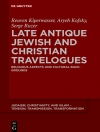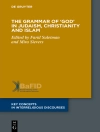The History of Persecution comprises tales facts and important details connected with the infamous persecutions which have stained the human history.
Content:
Of Persecution amongst the Heathens
Abraham persecuted
Socrates persecuted amongst the Greeks
Egyptian Persecutions
Persecutions by Antiochus Epiphanes
Persecutions under the Romans
Persecutions by the Mahometans
Of the Persecutions under the Christian Emperors
Of the Dispute about Easter
Of the Persecutions under Constantine
The Nicene Council, or first general Council
The first Council of Constantinople; or, second general Council
The Council of Ephesus; or, third general Council
The Council of Calcedon; or, fourth general Council
The second Council at Constantinople; or, fifth general Council
The third Council of Constantinople; or, sixth general Council
The second Nicene Council; or, seventh general Council
Of Persecutions under the Papacy, and particularly the Inquisition
Of the Progress of the Inquisition
Of the Officers belonging to the Inquisition
Of the Crimes cognizable by the Inquisition, and the Punishment annexed to them
Of the manner of proceeding before the Tribunal of the Inquisition
Of the present state of the Inquisition at Goa, extracted from Dr. Buchanans Christian Researches in Asia
Of Persecutions amongst Protestants
Luther’s opinion concerning Persecution
Calvin’s Doctrine and Practice concerning Persecution
Persecutions at Bern, Bazil, and Zurich
Persecutions in Holland, and by the Synod of Dort
Persecutions in Great Britain
Of Persecutions in New England, in America
Conclusion:
Who have been the great promoters of Persecution
The things for which Christians have persecuted one another have generally been of small importance
Appendix: Hints on the recent persecutions in the British Empire…
Tentang Penulis
Samuel Chandler (1693-1766) was a British Nonconformist minister and polemicist pamphleteer. He has been called the ‘uncrowned patriarch of Dissent’ in the latter part of George II’s reign. Chandler translated Van Limborch’s History of the Inquisition and he wrote a substantial introduction to Van Limborch’s original four volume Latin preface.










